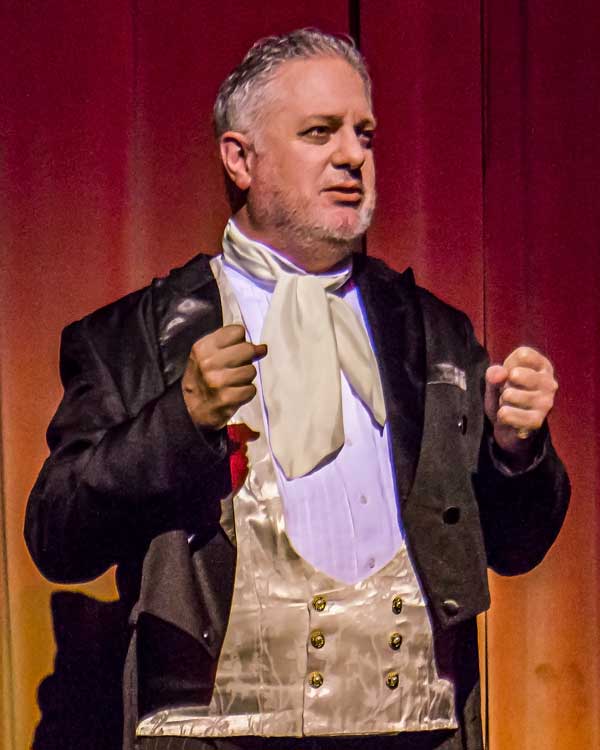|
By Alexandra Keegan, Artistic Director Many years ago when opera was first created, it was written in the language of the people, whether it was Italian, French, or German. Even so, this opera does require a bit more from the average audience member. Just like we will enjoy a movie based on a book if we have actually read the book first, so it is with opera. The more we understand the story, the more we will appreciate the aria and scene, even if we may not understand every single word that is being sung at the moment. We have heard the argument many times that people don’t go to operas because they can’t understand all of the lyrics. Consider the fact, though, that at a rock or pop concert, we may not comprehend all the words the performer is singing, yet we have no problem enjoying the performance because experiencing a live concert involves taking in the whole scene - the live singers, live band or orchestra, vocal ensemble, costumes, lighting, etc. The signature format of our shows features slightly condensed versions of the operas, with spoken narrative in English before and during the play. These narrative vignettes, performed by a professional actor, are designed to keep the audience engaged in the musical drama without being distracted by supertitles. This format has proved successful in attracting younger or first-time audiences to this complex (universal) art form. Our performances often sell out and we often overhear audience members, even youth, comment on how much they were able to understand at their first opera. Every opera production we do is based on the original score. But to make the story more compact and easier for the first-time audience members to understand, we make custom cuts. Most of the time it is music material that expands some secondary characters. In the full production those episodes are appreciated by the sophisticated listener, but make the production much longer and harder to absorb by first-timers.
To address the language problem for those who do not necessarily read the whole story beforehand, we freeze the action between large episodes and a storyteller (professional actor) comes on stage and describes in English what just transpired and what is going to happen in the next scene. Now the audience can enjoy the power of music in full and not worry about trying to understand the plot. By interviewing our audience members with children and teenages after the shows, we are absolutely convinced that our format is the future of the opera theatre. Every single family noticed that their children stayed engaged from the very beginning to the last note, they understood the story, they liked and disliked the characters, they loved the music, and they want to come back to see another opera.
2 Comments
|
AuthorPacific Lyric Association Archives
February 2024
Categories
All
|


 RSS Feed
RSS Feed